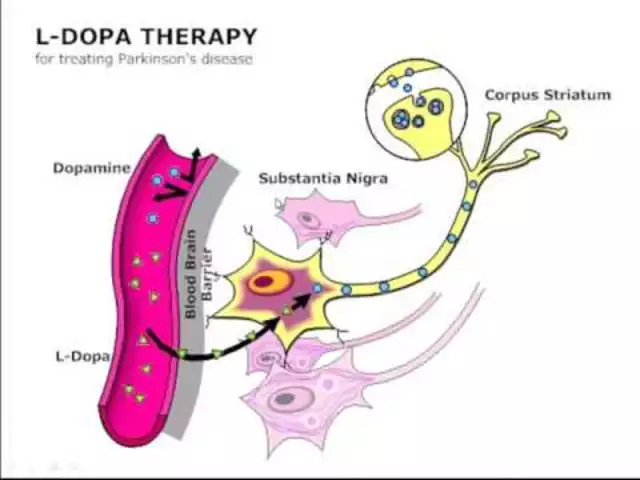 1
Jul,2023
1
Jul,2023
Understanding Tympanites
Before diving into the relationship between tympanites and constipation, it's essential to understand what tympanites is. Tympanites, also known as bloating, is a condition where your abdomen feels full and tight due to the buildup of gas in your stomach or intestines. This condition can be uncomfortable and sometimes painful. It's often accompanied by other symptoms like belching, flatulence, or a rumbling stomach. Many factors can cause tympanites, including swallowing air, eating too fast, consuming certain foods and drinks, and certain health conditions.
Defining Constipation
Constipation, on the other hand, is a condition where bowel movements become less frequent and stools become difficult to pass. It's a common problem that affects a significant number of people. It can be caused by various things, such as a lack of fiber in the diet, lack of physical activity, certain medications, and some medical conditions. Constipation can cause discomfort and pain and can lead to other health problems if not treated.
The Connection Between Tympanites and Constipation
Tympanites and constipation are often related. Constipation can lead to the buildup of gas in the stomach and intestines, which can cause tympanites. On the other hand, tympanites can also lead to constipation. When the stomach and intestines are filled with gas, it can make it difficult for the body to pass stools, leading to constipation. Therefore, it's important to understand the connection between these two conditions and how one can affect the other.
How Constipation Leads to Tympanites
When constipation occurs, it slows down the digestive process. This means that food stays in the digestive tract for a longer period, and the body has more time to absorb water from the food. This can lead to hard and dry stools, which can be difficult to pass. The slow movement of food through the digestive tract also allows bacteria to break down the food, which can produce gas. This gas can then build up in the stomach and intestines, leading to tympanites.
How Tympanites Leads to Constipation
On the flip side, tympanites can also lead to constipation. When there's an excessive amount of gas in the stomach and intestines, it can put pressure on the digestive tract. This pressure can make it difficult for the body to move stools through the digestive tract, leading to constipation. Furthermore, the discomfort and pain caused by tympanites can make it difficult for individuals to feel the urge to have a bowel movement, further increasing the risk of constipation.
Preventing Tympanites and Constipation
Preventing tympanites and constipation often involves making certain lifestyle changes. This can include eating a diet high in fiber, drinking plenty of water, getting regular physical activity, and avoiding foods and drinks that can cause gas. It's also important to eat slowly and chew food thoroughly to reduce the amount of air swallowed. If these changes don't help, it may be necessary to seek medical advice. There are medications and other treatments available that can help manage these conditions.
Diagnosis and Treatment
If you're experiencing symptoms of tympanites or constipation, it's important to seek medical advice. A healthcare provider can diagnose these conditions through a physical examination and by asking about your symptoms and medical history. Once diagnosed, treatment can begin. This can include lifestyle changes, over-the-counter medications, prescription medications, and in some cases, surgery.
The Impact of Tympanites and Constipation on Quality of Life
Tympanites and constipation can significantly impact a person's quality of life. They can cause discomfort, pain, and embarrassment. They can also interfere with a person's daily activities and lead to other health problems if not treated. Therefore, it's important to take these conditions seriously and seek treatment if necessary.
Conclusion
In conclusion, tympanites and constipation are often related and can impact each other. Understanding the connection between these two conditions can help in managing them effectively. It's important to seek medical advice if you're experiencing symptoms of these conditions, as there are treatments available that can help improve your quality of life.






Constipation slows intestinal transit, allowing more time for bacterial fermentation of residual nutrients. The fermentation process generates gases such as hydrogen, methane, and carbon dioxide, which accumulate in the lumen. As gas builds up, the abdomen stretches, producing the sensation commonly described as tympanites. Moreover, the hard stools characteristic of constipation can create physical obstruction that traps gas pockets. This obstruction further impedes the forward movement of both stool and gas, worsening bloating. Diets low in fiber exacerbate the problem by reducing stool bulk and motility. Increasing soluble and insoluble fiber improves stool consistency and accelerates transit, thereby limiting gas retention. Adequate hydration is also essential because water softens the stool and supports peristalsis. In clinical practice, addressing constipation often leads to rapid reduction of abdominal distension. Therefore, managing bowel regularity is a cornerstone in alleviating tympanites.
When constipation dominates, the colon’s ability to propel contents forward is compromised, which directly fuels tympanites. The stagnant fecal mass creates a reservoir for gas that cannot escape efficiently. This mechanical blockade is why patients often report a “full” feeling even after minimal eating. Rapid intervention with osmotic laxatives can break this cycle and deflate the abdomen. Don’t ignore the warning signs - act fast 🙂.
A balanced diet rich in fruits, vegetables, and whole grains supplies both fiber and prebiotic substrates that keep the gut moving. Pairing this with regular walks helps stimulate peristalsis, reducing the chance of gas build‑up. If you notice persistent bloating, try a daily probiotic to restore microbial harmony. Small, consistent changes often yield the biggest payoff.
The relationship between constipation and tympanites is essentially a feedback loop that thrives on slowed motility. When stool remains too long in the colon, water continues to be reabsorbed, rendering the feces dry and tough. This dryness makes the passage of stool painful, prompting many individuals to delay bathroom visits. Delayed defecation leads to increased fermentation of undigested carbohydrates by colonic bacteria. Fermentation releases volatile gases that accumulate because the narrowed lumen cannot vent them effectively. The accumulating gas stretches the intestinal walls, creating the classic sensation of abdominal bloating. Simultaneously, the pressure from the gas can compress the colon’s lumen, further hampering stool movement. This dual pressure mechanism explains why patients often experience simultaneous constipation and a feeling of “fullness.” Lifestyle factors such as sedentary behavior exacerbate this by weakening the muscular contractions that drive peristalsis. Moreover, certain medications like opioids or anticholinergics suppress the nervous signals that coordinate gut motility. Dietary choices also matter; low‑fiber meals provide little bulk, reducing the natural stimulus for bowel movements. Conversely, excessive intake of gas‑producing foods-like beans, cruciferous vegetables, and carbonated drinks-adds to the problem. The key therapeutic goal, therefore, is to break the cycle by restoring regular, soft stools and limiting gas production. Increasing soluble fiber intake, staying hydrated, and engaging in moderate exercise are foundational steps. In refractory cases, clinicians may prescribe osmotic laxatives or prokinetic agents to jump‑start transit. By addressing both the mechanical obstruction and the gaseous component, patients can achieve lasting relief from both constipation and tympanites.
Yo, thinkin bout gut vibes, when you hold things in, the belly just throws a tantrum-like, why not just let it flow? It’s kinda like a traffic jam in a city that never sleeps, gas builds up, pressure pops, boom, you got that bloaty drama. So maybe chill on the hold‑up and give the system a green light, yeah?
Constipation is a barrier to gas flow; breaking it releases pressure. Simple diet tweaks work.
This article overcomplicates a simple issue.
Your deep dive hits the nail on the head, especially the part about medication‑induced slowdown. It’s a reminder that we need to look beyond just food when tackling these problems. Keeping an eye on drug side‑effects can make a huge difference.
Hey folks, let’s get moving! A daily 30‑minute walk can spark peristalsis and chase that gas away. Pair it with a colorful plate of fiber‑rich veggies, and you’ll feel lighter in no time. Keep the momentum, and the belly will thank you.
Oh, sure, because a stroll will magically erase years of bad habits 🎉. But hey, if you enjoy a scenic route while your gut throws a temper tantrum, go ahead. Just remember, consistency beats occasional heroics every single time 😊.
From a physiological standpoint, the enteric nervous system orchestrates motility, and any disruption can cascade into both constipation and tympanites. Ignoring this complex interplay does a disservice to patients who deserve evidence‑based interventions. Addressing diet, activity, and medication side‑effects holistically yields the best outcomes.
Listen up, you can’t keep blaming “bad luck” for a sluggish gut. Take charge: add at least 25 grams of fiber daily, drink a gallon of water, and schedule a bathroom break after meals. Push past the excuses, and the bloating will melt away.
Wow, the drama really escalates! 🌟 Let’s be real-tiny habit changes spark massive relief. Trust the process, and your belly will finally breathe easy 🫁.
Honestly, the advice feels repetitive but not entirely useless.
Picture your gut as a bustling city; fiber is the road network, water is the traffic flow, and movement is the bustling crowd. When any piece falters, congestion and bloating ensue. Restoring balance with vibrant foods and steady hydration turns chaos into harmony. Keep nurturing that inner metropolis, and serenity will ripple outward.